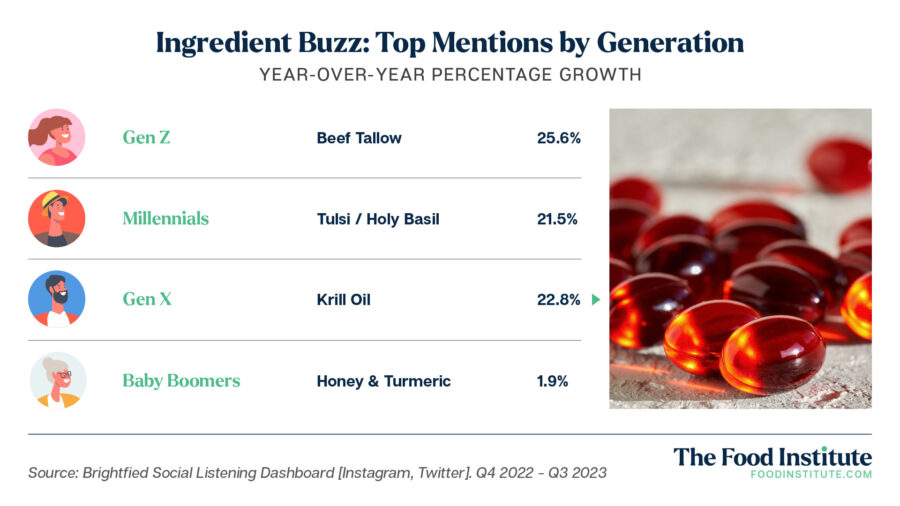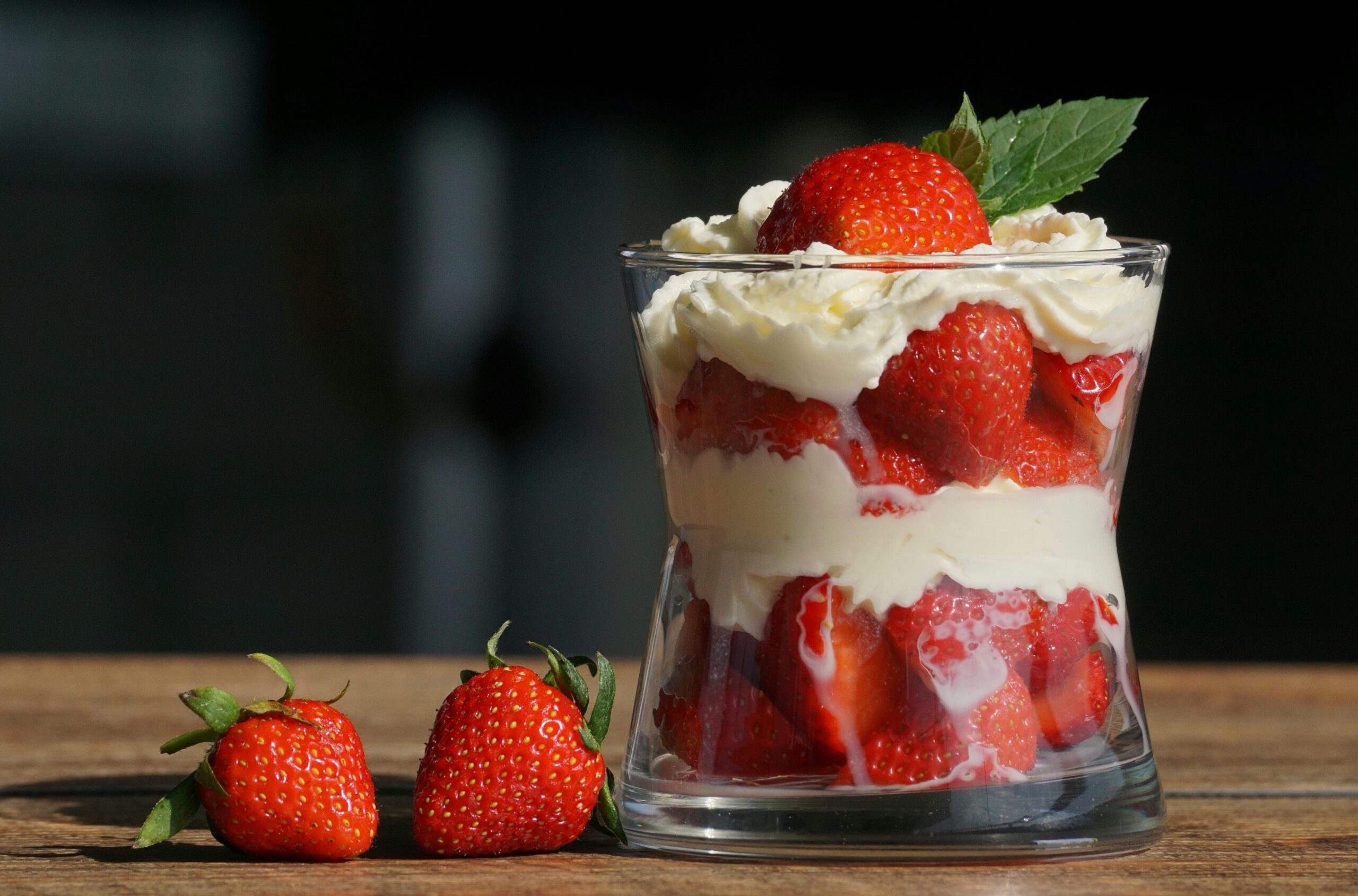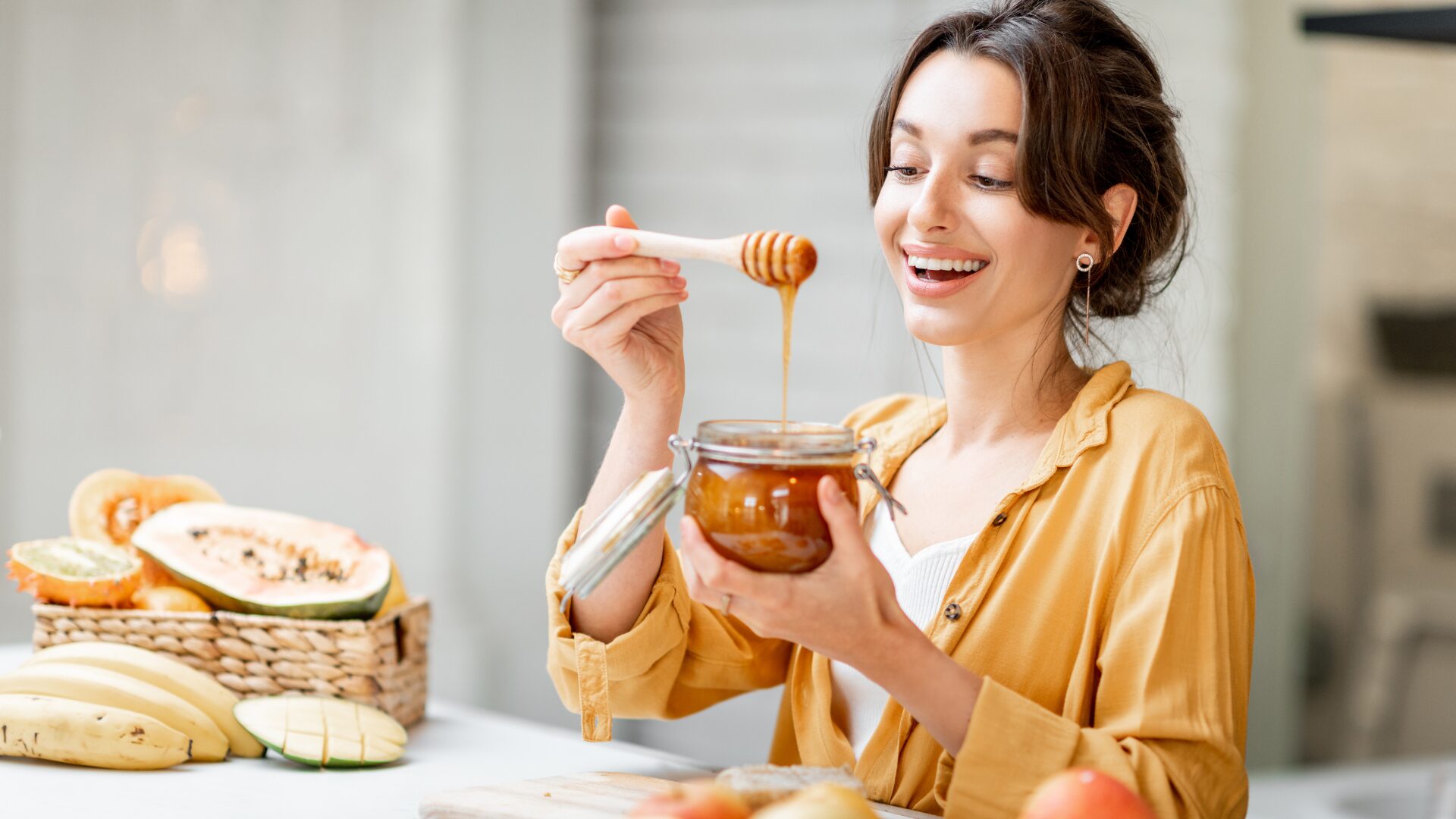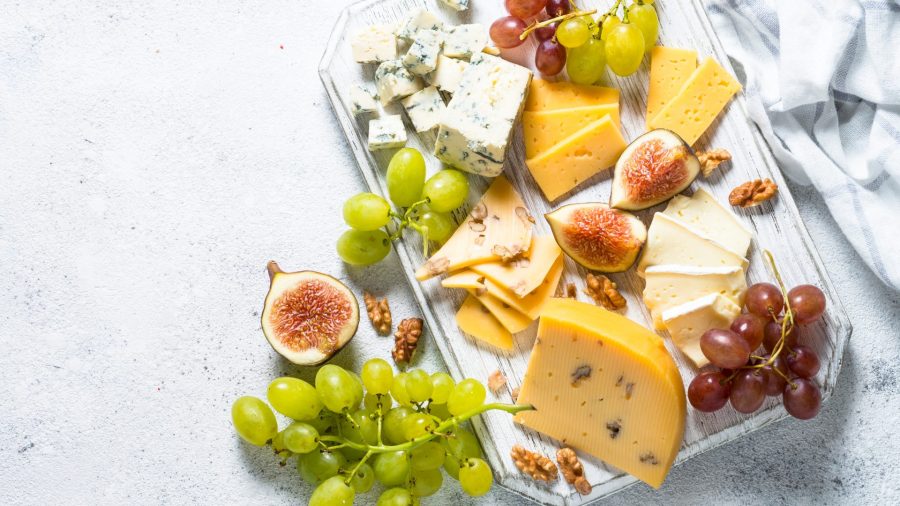Across the food and beverage industry, health and wellness innovations are a prime target. What up-and-coming inclusions are consumers buzzing about? Here are five ingredients topping the charts on Brightfield Group’s Social Listening Dashboard.

5. Creatine (+12% YoY)
Creatine is a natural source of energy. About half comes from eating protein-rich foods like red meat and fish, while the body produces the other half naturally.
It is primarily recognized for providing the muscles with a steady supply of energy so they can keep working, especially while exercising. Some research suggests that creatine might also mitigate the effects of sleep deprivation and potentially reduce the amount of sleep needed to feel rested.
Accordingly, the top consumer need states for creatine are athletic performance and sleep (15.7%), followed by exercise (15.1%). Mentions are highest among Gen X, with Millennials a distant second.
Furthermore, females are driving these conversations. As Women’s Health reports, women have naturally lower creatine stores, so they respond better to supplementation and could experience double the performance improvement than males.
4. Aquafaba (+12.1% YoY)
Aquafaba, or “bean water,” is the brine made from cooking legumes such as chickpeas.
Per The Vegan Society, this highly diverse ingredient can be taken straight from canned beans and used as an egg replacement in foods from meringues, mousse, and ice cream to mayonnaise, butter, and aioli.
The top consumer need states for aquafaba are digestive health (49%) and plant-based (16.2%). Overall social mentions are highest among Millennials and women.
3. Berberine (+12.2% YoY)
Berberine is a naturally occurring compound that’s found in several types of plants, including European barberry Goldenseal and tree turmeric. Benefits include diabetes management, improving gut microbiome, and lowering cholesterol and blood pressure.
It is commonly used in Chinese, East Asian and Ayurvedic medicine. But according to U.S. News & World Report, the ingredient has recently gained a lot of attention on social media due to its purported effectiveness for weight loss, with many people calling it “nature’s Ozempic.”
The top consumer need states for berberine are energy (33.6%) and sustainability (19.8%). Overall social mentions are highest among Millennials and Gen X, but it’s also intriguing Gen Z.
2. Tongkat Ali (+14.4% YoY)
Tongkat ali is a shrubby tree native to Southeast Asia. The roots, bark, and fruits of the flowering plant are often used to make remedies.
Herbalists regard tongkat ali as an adaptogen — an herb that helps the body adapt to physical, chemical, and biological stress, as noted by Medical News Today. On social media, mentions are increasing in coffee, smoothie, and soup recipes.
The top consumer need states for tongkat ali are energy (11.7%), exercise (10.7%) and relaxation (5.2%). Overall chatter is highest among Millennials, and the ingredient is of interest to both women (12.7%) and men (8.6%).
1. Moringa (+15.0% YoY)
“Moringa has a long history of use in traditional medicine across many parts of the world but has grown in popularity recently for its qualities as a superfood,” Genevieve Gilbreath, co-founder at Springdale Ventures, told The Food Institute. Moringa powder is “high in vitamins C, B5, B6, iron, magnesium, calcium, and phosphorus.”
The top consumer need states for moringa are functional health (25.3%), holistic wellness (13.1%) and heart health (11.5%). Overall social mentions are highest among Millennials and Gen Z, with some additional traction from Gen X.
“Thanks to its high content of antioxidants, moringa can help fight back the normal inflammation process that occurs after an injury or infection,” Eva De Angelis, health and nutrition writer at E-Health Project told The Food Institute. “Chronic inflammation has a well-known link to severe health issues, such as heart disease, type 2 diabetes, and cancer.”
Incorporating moringa into the diet also promotes heart health.
“High blood cholesterol leads to heart disease,” De Angelis added. “A plant-based diet is the best approach to lowering our cholesterol levels, and several studies have shown that moringa has the same effects as any other plant food in lowering cholesterol.”












